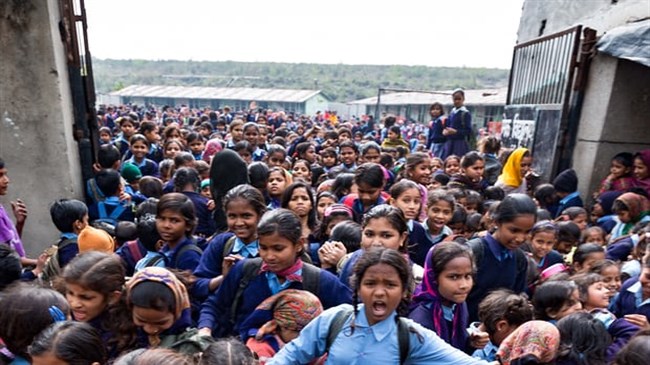
The plan comes after several high-profile crimes at schools in and around the city, including the alleged rape of a five-year-old girl by a member of staff in September and the murder of a seven-year-old boy at a private school in Gurgaon during the same month, according to The Guardian.
Delhi’s chief minister, Arvind Kejriwal, said that the monitoring system would “make the whole system transparent and accountable [and] ensure safety of kids”.
The plan to install the cameras was initiated in September 2015 but the addition of real-time monitoring was made public this week. The cameras will be in all the region’s approximately 1,000 schools within three months.
The app is understood to still be in development but will include a complaint feature. “If parents spot anything wrong and want to complain, then they can use the app to register it. The issue will be addressed by officials from the department concerned,” an education department official told the Hindustan Times.
“It’s a good thing. We have to know what our children are doing there all day,” said Uma Thakur, whose daughter, five, is in year two. “There are rape cases, murders. These things are happening in schools everywhere. Every parent is worried.”
Shalu Verma, whose son is in year six, said the cameras would help him to see “whether teachers are teaching the students or busy doing their own personal work”.
“We will know, how much attention they are giving students, and also whether students are paying attention.”
He could also monitor whether classrooms were being cleaned and if students were receiving the midday meal on time, he added.
But Apar Gupta, a lawyer who was involved in a recent supreme court case that established a right to privacy in India, said the impact of CCTV cameras on public safety was still unclear.
“They give a sense of security but it’s misplaced because they don’t really work,” he said. “Most of the studies are inconclusive.”
He said the government needed to establish that the ‘indiscriminate’ use of surveillance in public schools was necessary and proportionate, more difficult in this case given “the people who will be under perpetual surveillance will be children”.
The Delhi administration ran for office on a campaign to increase safety in the region in part by installing thousands of CCTV cameras in public spaces and on buses, but has made little progress so far.
Delhi’s education minister, Manish Sisodia, has said the system would also help the government investigate claims of teacher misconduct or absenteeism.
Teachers going missing but continuing to collect their government salaries is thought to be endemic across Indian state schools, though a recent study found the scale of the problem might be exaggerated.
Ajay Veer Yadav, general secretary of the Government School Teachers’ Association, said he totally disagreed with the idea of cameras.
“More than 70 percent of teachers are women,” he said. “Why do they want to put CCTV cameras on them and put this in the public domain?

Add new comment